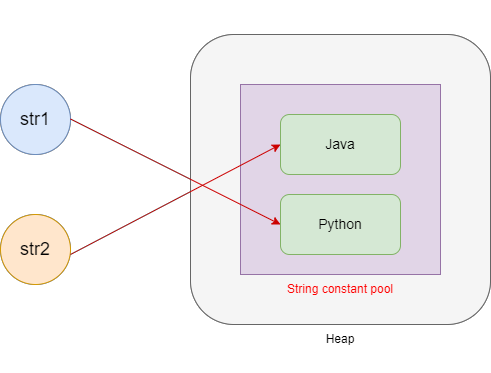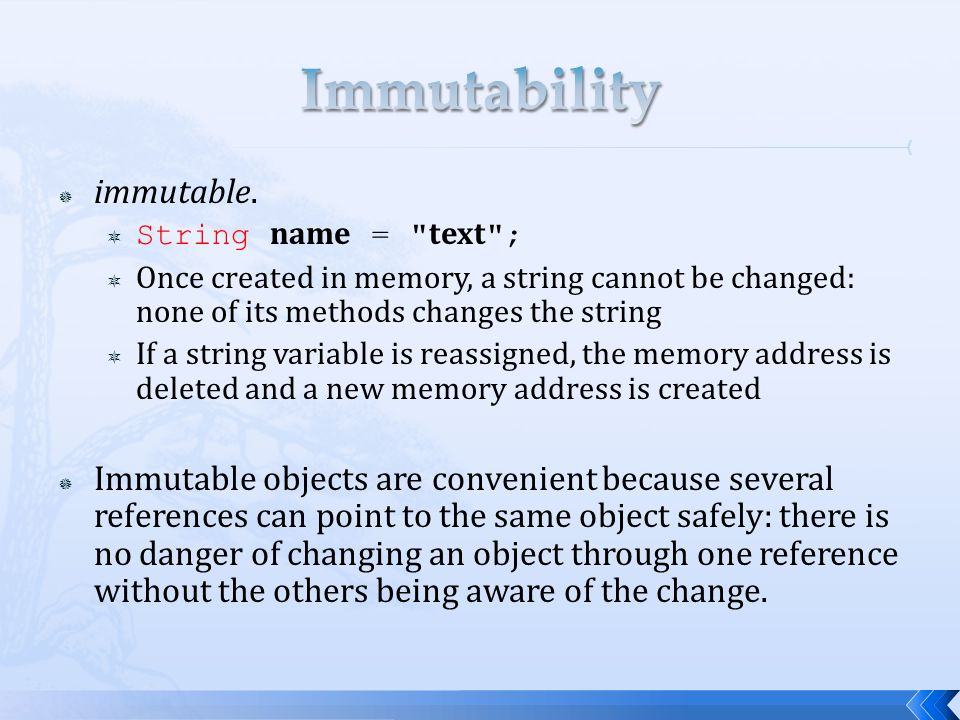Why Are Strings Immutable in Java? Ideal Practices and Use Cases
Why Are Strings Immutable in Java? Ideal Practices and Use Cases
Blog Article
What Is Unalterable Strings and Exactly How It Functions
In the world of programming, understanding the principle of unalterable strings is vital for producing robust and safe and secure applications. Immutable strings refer to strings that can not be modified after they are created, ensuring information honesty and predictability within the code.
The Essentials of Unalterable Strings
Unalterable strings, as an essential principle in shows, are character series that can not be altered once they are developed. This suggests that when a string is designated a worth, that worth can not be modified. In languages like Python and Java, strings are unalterable objects, causing different ramifications in terms of memory management and information honesty.
Among the essential benefits of unalterable strings is that they provide a sense of protection in data manipulation. Considering that the content of an unalterable string can not be modified, it ensures that the initial information remains undamaged, reducing the danger of unintended modifications throughout program execution (Why are strings immutable in Java?). This property also simplifies debugging processes, as programmers can trust that as soon as a string is specified, its value will certainly not be unintentionally changed
When a new string is created based on an existing one, rather than modifying the initial string, the new value is kept individually. Generally, recognizing the essentials of unalterable strings is crucial for mastering programs ideas and maximizing code performance.
Benefits of Unalterable Strings
Building upon the safety and security and performance advantages of immutable strings, their benefits encompass enhancing code reliability and streamlining concurrent shows jobs. By being unalterable, strings can not be changed after production, which removes the danger of unplanned changes in the information they store. This fundamental immutability makes certain that as soon as a string is developed, its value continues to be constant throughout the program's implementation, decreasing the possibilities of insects brought on by unforeseen changes.
Additionally, unalterable strings add to code dependability by making it much easier to reason about the state of a program. Considering that strings can not be altered, designers can rely on that a string will always hold the same value, simplifying debugging and upkeep initiatives. This predictability leads to extra secure and reputable codebases.

Execution in Programming Languages
Within different shows languages, the unification of unalterable strings is a fundamental facet that affects how information is handled and manipulated within code structures. The implementation of immutable strings varies throughout various programs languages, with each language supplying its very own mechanisms to support this principle.

In comparison, languages like C and C++ do not have built-in support for unalterable strings. Programmers in these languages need to manually carry out immutability by enforcing policies within their code to avoid straight alterations to string objects.
Best Practices for Dealing With Immutable Strings
When dealing with unalterable strings in shows languages like Java and Python, adhering to ideal techniques ensures safe and secure and effective data manipulation. Among the key finest methods is to use StringBuilder or StringBuffer rather than directly controling strings, especially when handling substantial concatenation operations. These courses supply mutable choices Extra resources for string manipulation, assisting to stay clear of unnecessary memory allowances and boosting performance.
One more finest technique is to utilize string interpolation or format functions offered by the language instead of hands-on concatenation. This not only enhances readability yet additionally aids in protecting against usual challenges such as unintended string alterations. Additionally, when functioning with sensitive data such as passwords or API secrets, it is vital to prevent saving them as simple message in immutable strings. Using secure storage mechanisms like char varieties or specialized collections for taking care of delicate info helps mitigate safety and security dangers connected with unalterable strings.
Real-world Applications and Examples
Exploring sensible executions of unalterable strings in numerous industries discloses their substantial effect on data honesty and system reliability. In the healthcare market, immutable strings play a critical function in ensuring the security and confidentiality of individual information. By preventing unapproved modifications to sensitive details such as medical documents and prescriptions, unalterable strings assist maintain compliance with stringent privacy regulations like HIPAA.
Monetary establishments likewise gain from the immutable nature of strings to boost the protection of consumer data and transaction records. Immutable strings assist avoid scams and unauthorized changes to monetary info, offering a robust protection against cyber threats and making certain the trust and confidence of clients.

Final Thought
Finally, immutable strings are fixed and stable sequences of characters that supply advantages such as string security and improved performance in programs. They are implemented in numerous shows languages to ensure information integrity and safety. Ideal methods for functioning with immutable strings include avoiding straight alterations and utilizing approaches that return new string objects. Real-world applications of immutable strings include data security, caching, and string control tasks.
Immutable strings refer to strings that can not be modified after they are created, guaranteeing information stability and predictability within the code. When a new string is created based on an existing one, instead than customizing the initial string, the brand-new value is saved independently.In languages like Java and Python, strings are immutable by default, implying that when a string item is developed, navigate here its value can not be changed - Why are strings immutable in Java?. Ideal techniques for working with immutable strings consist of avoiding direct modifications and using techniques that return new string objects. Real-world applications of immutable strings include data security, caching, and string manipulation tasks
Report this page